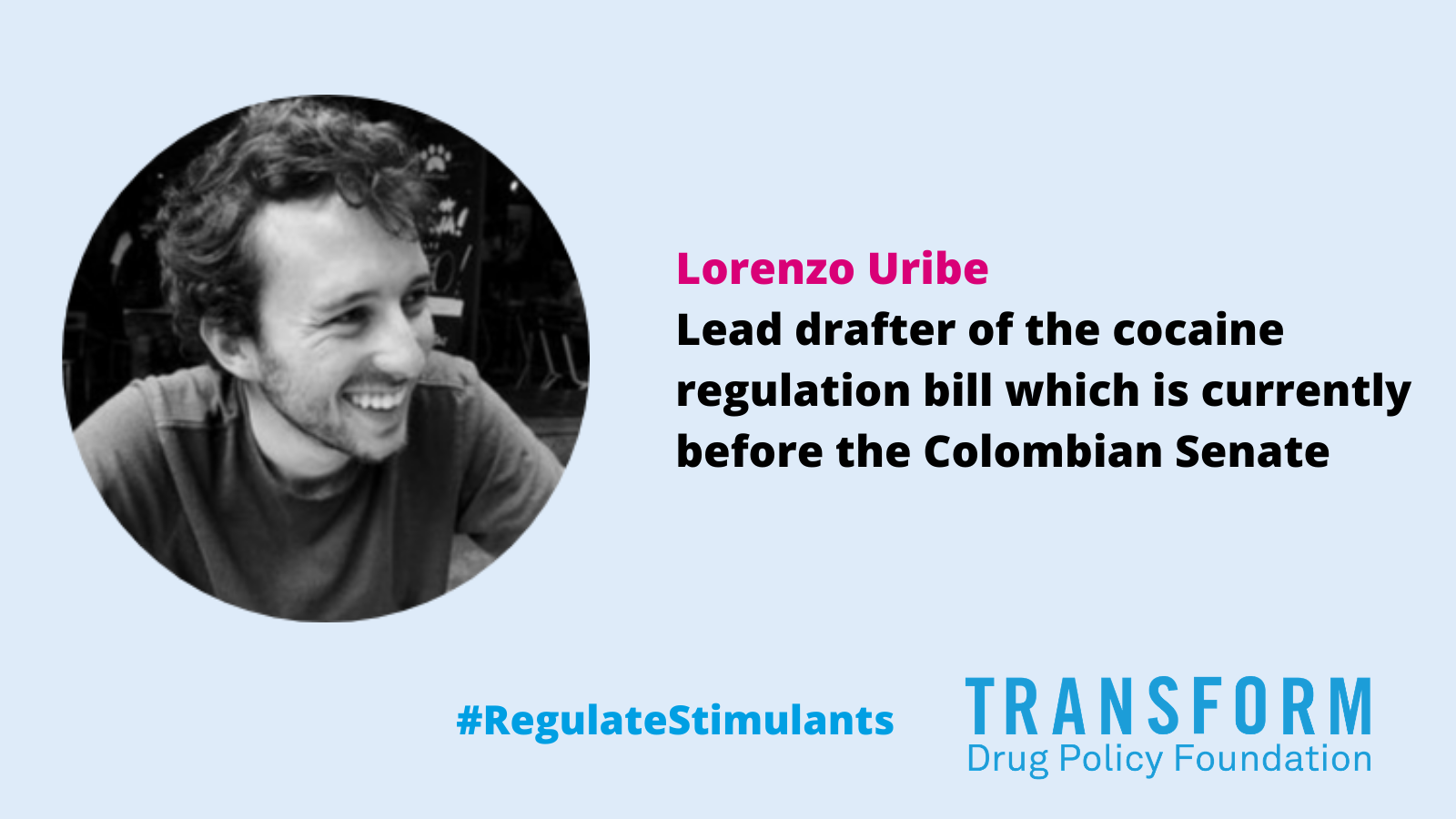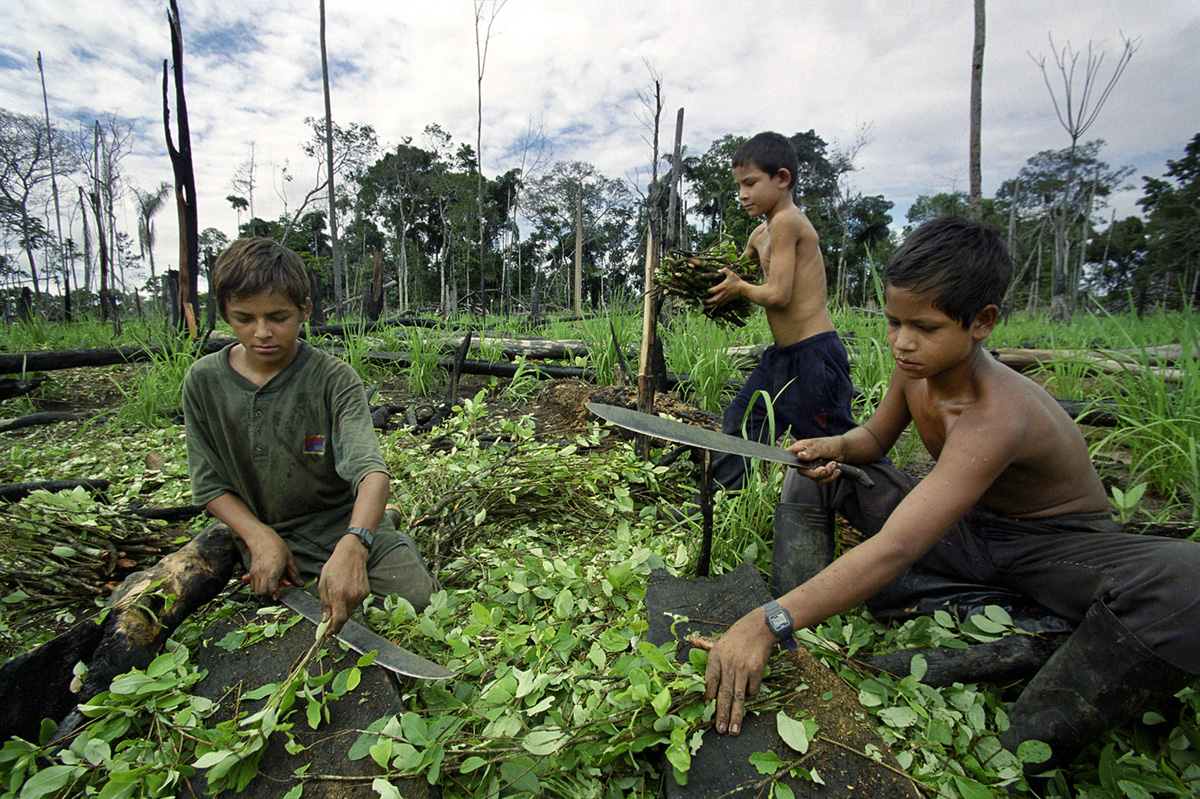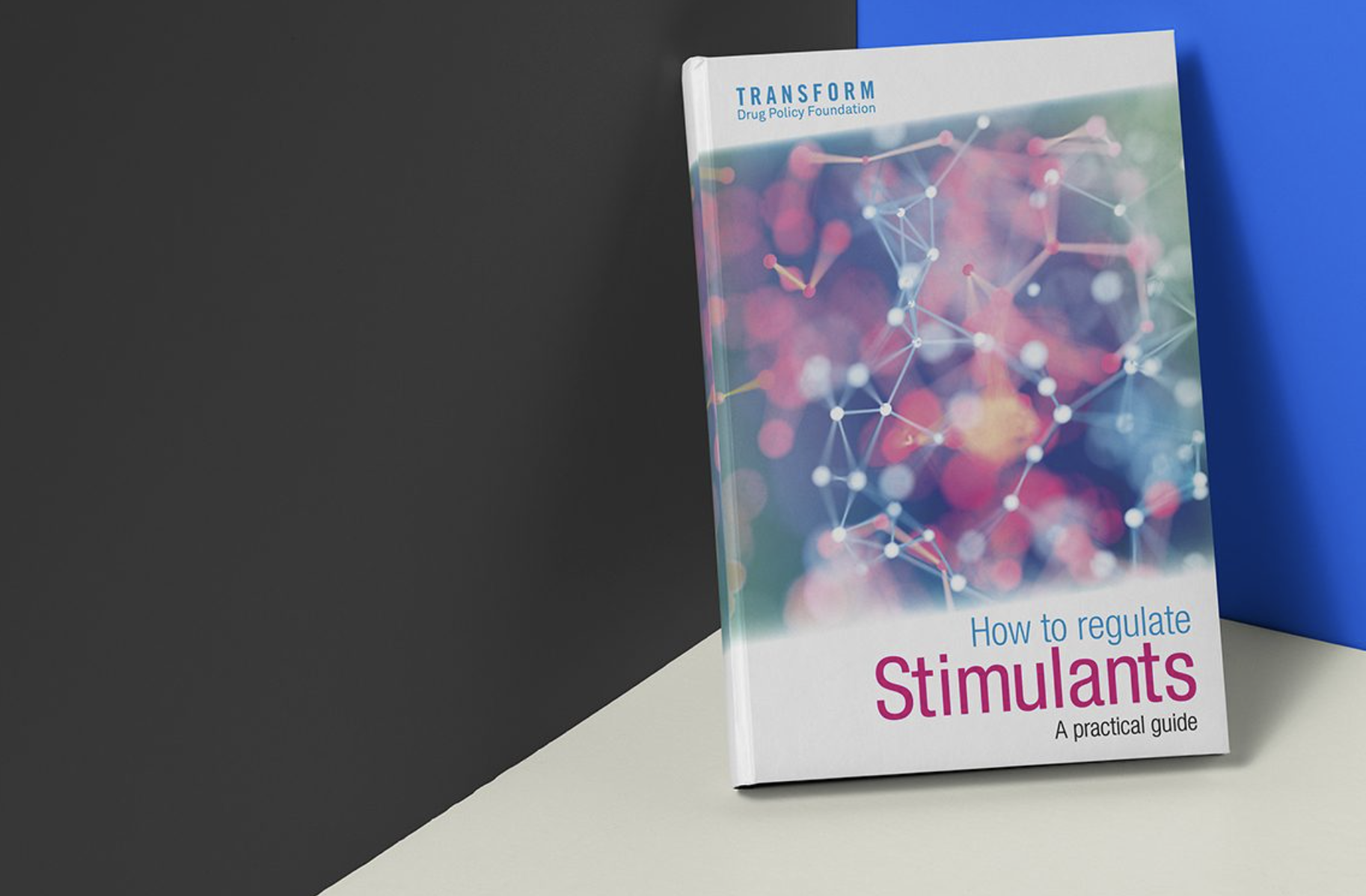3rd March 2021
Interview with Lorenzo Uribe

Why is Colombia debating cocaine regulation?
When a policy has failed over and over again during the past forty years, the natural thing to do is to reconsider that policy. The prohibition of the coca plant and cocaine in Colombia has not only failed to reduce the quantity of cocaine produced, it has also brought immense suffering to Colombians.
The production of cocaine in Colombia increased by more than 160% between 2008 and 2018, while the price and purity have stayed more or less constant. Thousands of people die each year (it has been estimated that there are 3,800 homicides per year in Colombia in relation to the war on drugs), it has cost billions of dollars (the money spent on coca eradication policies in Colombia between 2005 and 2014 is equivalent to 50 years of the annual budget for agriculture), it has displaced coca plantations to protected areas, contributing to 24% of the deforestation in 2017 and it is a major source of prison overcrowding (between 2005 and 2014, on average 9 people were arrested for drug-related crimes in Colombia every hour). Also, it has fueled corruption and political instability in the country for more than thirty years. It's time to try a different approach. If we want to change the current international approach to drugs policy it has to start from Colombia, one of the most - if not the most - affected country by the war on drugs. We have the moral responsibility and credibility to do it.

Who is responsible for the Bill and what has motivated them?
Senators Iván Marulanda, from the Green Party and Feliciano Valencia, from the Indigenous party MAIS, both belonging to opposition parties, are the main authors of the Bill. Before joining the Green Party, Iván Marlunda was part of a party called "Nuevo Liberalismo" whose main aim back in the 80s was to oppose the increasing influence of drug cartels in politics. As a result, most of its members were killed, including Luis Carlos Galán who was about to become president. Thirty years later, Iván Marulanda reached the conclusion that the only way to reduce the impact of drug trafficking on Colombia's society, institutions and the environment is through the regulation of the cocaine market. Given the importance the coca plant has for Indigenous communities but, also, the damaging impact the war on drugs has had on their territories and communities, Senator Marulanda approached Senator Valencia to accompany him in this project - something Senator Valencia accepted immediately.

What does this new cocaine regulation Bill propose?
The proposed Bill was based on Transform's three-tier regulation framework to regulate stimulants. The main idea is to have three types of regulatory levels depending on the risks of the products:
The first set of regulations would cover low potency or non-psychoactive products such as the coca leaf itself, as well as beverages, food and cosmetic products based on the coca leaf. These products would be subject to lighter regulation, similar to those already in place for similar products such as coffee, with private actors allowed to buy and sell these products more freely.
The second type of regulation would cover psychoactive products derived from the coca leaf that are used for recreational purposes, such as cocaine. Under this type or regulation, consumers would have to go through a medical check-up and register in a database before being allowed to buy a certain dose of cocaine in registered pharmacies. All types of advertisements and sponsoring would be forbidden and only adults would be allowed to purchase cocaine.
The third type of regulation would cover psychoactive products derived from the coca leaf that, due to their health consequences, would remain prohibited for sale, such as crack cocaine. However, use would not be criminalised and a harm reduction strategy adopted, ensuring that all problematic consumers can receive adequate social and medical treatment.
The harvest of coca plants and the production of cocaine would also be subject to a strict regulation. Coca plantations would be authorized only in the areas where coca is currently being grown, as long as they remain outside of the environmentally protected areas. This is to ensure that the regulation of this market benefits the areas and communities most affected by the war on drugs and prevent new actors with potential advantages from entering the market. In addition, only local farmers and Indingeous communities would be allowed to grow coca plants and would benefit from the technical and financial assistance of the State. The harvest would then be bought by the State who would sub-contract the transformation of the coca leaf into cocaine to research centers and pharmaceuticals.
What was your role in the Bill’s process?
During the past two years, I was the main person in charge of preparing the Bill. This included doing all the preliminary research, leading interviews with national and international experts and the writing of the Bill. During all this process we received support from national and international organizations, such as national and international NGOs, university research centers as well as Indigenous and traditional farmer organizations. In particular, the Colombian NGO Acción Técnia Social (ATS) - which has a long experience on harm reduction strategies with drugs - played a key role. At the early stages of the project, Transform Drug Policy Foundation presented us their proposal to regulate stimulants which served as the basis to structure all the regulatory framework contained in the bill.
How would you explain the regulation model?
Following Transform's advice, we opted to start with a strict regulation of the cocaine market (including a registered purchaser system to ration sales, licences required to produce or sell cocaine, and restricting sales to powder cocaine). The reason for this is twofold. First, given that this would be the first time that the whole chain of the cocaine market would be regulated, we prefered to start with a strict regulation and then, depending on the observed results, relax some of the restrictions rather than starting with a liberal approach without knowing with certainty the consequences. Second, from a political perspective, we wanted to anticipate the standard criticisms coming from the defenders of the strict prohibition, according to which, regulating drugs is equivalent to liberalizing the market of drugs.
How has the Bill been received?
To our great surprise, the response has been overwhelmingly positive, including within the media. In fact, most of the criticisms have come from people and organizations that support the Bill but consider that we should have been less strict: for example, allowing the distribution of crack cocaine or giving more place to private companies. What's interesting about this proposal is that it is supported by people from all over the political spectrum: from left movements that see the war on drugs as an imposition of U.S interests on the country, to pro-market and libertarian politicians and opinion leaders that oppose all sorts of prohibitions. We have also received letters from organizations and citizens all over the country expressing their support, including, for example, a retired police officer that worked for years in anti-narcotics operations and told us he had dreamed for years to write the Bill we presented.
Within Congress, the Bill was signed by more than 20 Congressmen from 8 different parties. Only the evangelical parties and the two parties that belong to the Government coalition are openly against it, although they haven't talked publicly against the Bill yet.
What is the time table for the passage of the Bill and what do you hope it will achieve?
A public hearing in the Senate was held at the end of last year in which local organizations and different groups of experts had a chance to give their opinion about the Bill. As a result, minor changes to the Bill were made. Congress sessions start again in March so we expect the Bill to go through the first of the four debates it needs to pass to become a law before the middle of this year.
We know that the chances it will pass are slim at this stage. However, from the beginning, the main idea with this Bill has been to put the topic on the agenda. Criticizing the war on drugs and talking about the need to regulate drugs has become a common opinion among opinion leaders, progressive politicians and former presidents (but only once they retire...). But this is the first time an active politician is moving from the diagnosis and has made a concrete proposal on how to regulate this market. The proposal has plenty of practical challenges but we see it as the first stone in a long road.
Senator Marulanda has announced his intention to become the presidential candidate of the Green Party in the next elections. Although it's too early to make conclusions, having him as a presidential candidate will definitely contribute to the visibility of this proposal in the public agenda.
Anything else you want to say?
I would like to highlight the role Indigenous communities played in this process. From the early stages of this project we realized the support of Indigenous communities would be crucial to the success of the Bill. As in the other Andean countries of the region, some Indigenous communities have had a long and strong relationship with the coca plant. As a result, they have been one of the most affected communities by the war on drugs. The Colombian Constitution also gives them special rights on these matters. That's why we approached the Senator of the main Indigenous party and asked for his support. Thanks to him, we were able to share early versions of the Bill with the main indigenous organizations of the country, which resulted in a final version of the Bill that includes special provisions for Indigenous communities.

You can read Transform's proposals for coca and cocaine regulation in our recent book, How to regulate stimulants: a practical guide. You can download the full book for free here or purchase a hard copy from our shop.
Follow Lorenzo on Twitter @LorenzoUribeB




